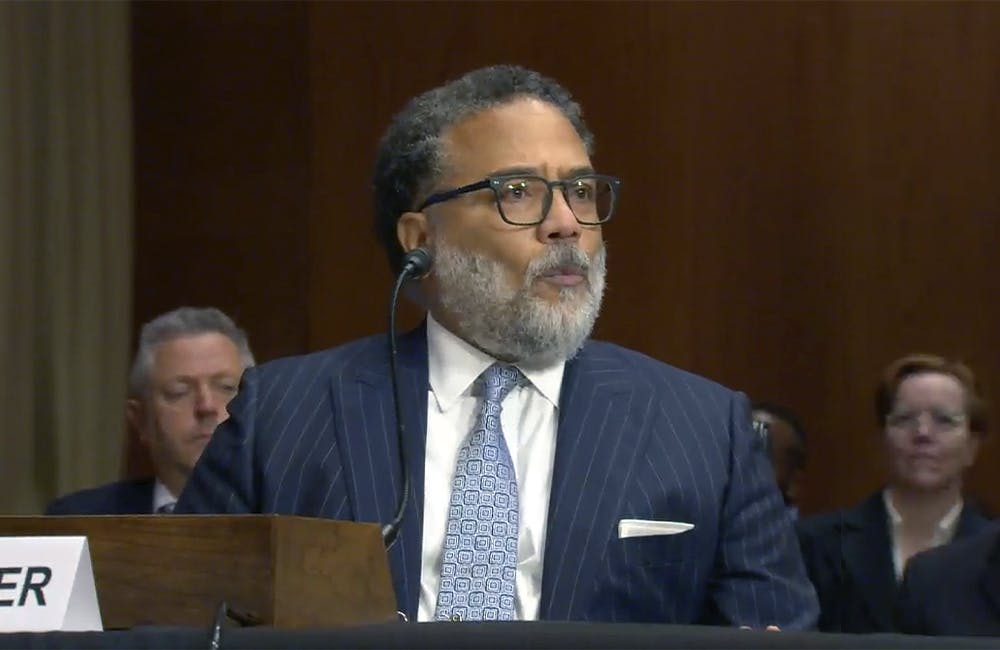New IRS Features Bring a Digital Experience to Taxpayers
As the agency leans into digital engagement with taxpayers, IRS web developers are embracing human-centered design and Agile practices.

The IRS is releasing a number of online tools for taxpayers in the coming weeks in its ongoing effort to expand digital accessibility and resources for the public.
Among these public-facing digital services include a new online account for tax professionals to bridge their work with their clients’ information and approvals, IRS Web Application Enterprise Director Eric Markow said at a GovExec event last week.
“In about a week, we’ll be releasing our brand new online accounts,” Markow said. “This will allow tax professionals to set up a power of attorney, a tax information authorization for their clients and have the client go into their personal IRS online account to securely approve that and digitally sign. This will allow for a faster experience for our taxpayers.”
Markow added that his team is also working on a similar setup for its income verification express service partners.
The IRS also is developing a new 1099 form portal, which Markow said is in support of the Taxpayer First Act.
“We’re building a brand new form 1099 portal to allow taxpayers and partners to be able to access and submit their income information, different from wages, salaries and tips in a never-before, digitally focused way online,” Markow said.
Along with these new features, the IRS is also iterating on the IRS.gov personal online account portal. Some of these expanded features, Markow said, include the additions of virtual assistant technology, live assistant chat and secure two-way messaging with the IRS. The agency is also looking to provide more options for foreign language support in its online tools.
Amid these upcoming features, the IRS released tools around the Child Tax Credit eligibility and update portals.
“We embrace human-centered design techniques,” Markow said regarding development of the tools. “Most recently, we partnered with the U.S. Digital Services team to visit homeless shelters to get feedback on our new Advance Child Tax Credit eligibility assistance. The Advance Child Tax Credit is so important and vital to so many Americans that we really want to be able to ensure that our online tools are meeting the needs of all taxpayers. Taxpayers want reliable and accessible technology.”
In creating tools like the Child Tax Credit portals, Markow said that iterative design and Agile methodologies have been critical components to deliver tools quickly and to adjust them based on user feedback.
“We follow Agile design and development practices, so we’re providing functionality incrementally over time,” Markow said. “We believe it’s super important to provide a minimum viable product, or MVP, quickly out of the gate so that we can do that rather than be waiting and building a web tool that has all the bells and whistles from the start, but adds additional time and rest.”
After launching an MVP, Markow’s team follows up with successive, incremental releases over time from a backlog of work adjusted based on priorities and incoming needs. This, Markow stressed, is the only way he believes his team can keep providing consistent success with its tools.
As the IRS continues to work on new projects and build on existing ones, Markow recommended that digital service providers combine Agile practices with human-centered design and user feedback to find their own success.
“Don’t be scared to get real human-centered design feedback from whoever your customer is,” Markow said. “Also, make sure that you have a release plan that’s ready for success by releasing your functionality in measured increments. Don’t try to release everything from the start and delay something that could be useful or necessary to get out sooner. And then as you look ahead and consider what to provide to your customers, think of the tools that will help them interact with the digital world, and try it out in a small scale and then build up.”
This is a carousel with manually rotating slides. Use Next and Previous buttons to navigate or jump to a slide with the slide dots
-

Agencies Want to 'Demystify' Generative AI to See Greater Adoption
Managing concerns over generative AI capabilities requires sharing best practices and use cases for workflows.
2m read -

Defense Board Outlines Path for Integrated Digital Ecosystem
Members of DOD's board exploring digital business transformation said that standards and culture are some of the keys to technological change.
4m read -

White House Calls on Software Devs to go 'Memory Safe' for a Secure Future
A new advisory supports the National Cyber Strategy's call for shifting responsibility for cybersecurity to developers.
3m read -

Veterans Legacy Memorial Touted as 'Industry Standard' for Digital Modernization
VA Undersecretary Matthew Quinn told Congress that IT modernization will improve ability to find, connect to records.
4m read








